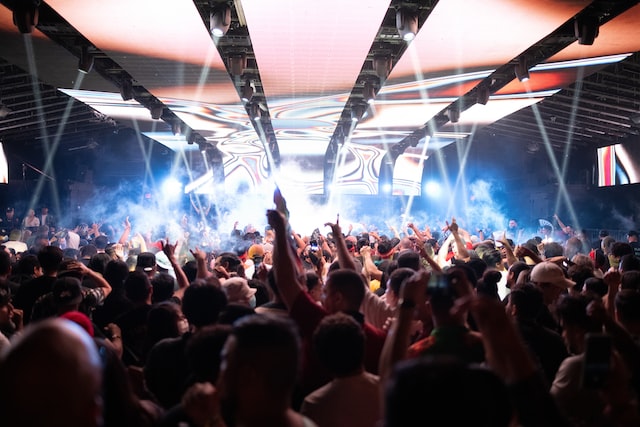
Paris, France, October 2020 – As part of the European Week of Sport, which is held each year on 23-30 September, the MATCH-SPORT project (“Make Amateur Sport Tolerant by Eliminating Racism and Discrimination”) organised an online awareness campaign about discrimination and violence in amateur sport as well as two web conferences that gathered some 30 project partners and other Efus’ members or partners.
#weplayfair campaign on social media
Broadcast on Facebook and Instagram, the #weplayfair campaign targets amateur sport practitioners as well as parents and educators with a series of questions set on a backdrop of sports images. “Do you play fair? Show us what you do against discrimination”, “You intercept every pass. So why not intercept a sexist comment?”, “You tackle your opponents. So why not tackle homophobia?” The campaign features a total of 21 posters in English and 21 in French under the signature “On the field, off the field #weplayfair.”
One of the MATCH-SPORT project’s deliverables, this campaign was designed by Efus in close collaboration with the project partners. It will be broadcast up until Christmas and has already reached 2 million users on Instagram.
How to manage violent incidents between players and members of the public?
The European Week of Sport was also an opportunity for the MATCH-SPORT project to gather the project’s partners and other stakeholders interested in tackling discrimination and violence in amateur sport at two online conferences.
The theme of the first one, on 28 September, was how to manage violent incidents between players and members of the public. The debate was structured around three questions: 1) Where is the limit between sporting competitiveness and violence? 2) How do European cities cooperate with sports clubs to avoid such incidents? 3) How sports rules can make games more inclusive and how to involve referees?
The participants discussed how competitiveness is part and parcel of sports and how it can lead to violence. They agreed that the public – in particular parents and educators – should be made more aware of the need to fight discrimination, and they mentioned several local initiatives implemented by European local authorities.
As regards the difficult role of referees, the participants noted that their training is mostly technical when it should be more focused on their educational role with children and youngsters.
The minutes of this conference are available on Efus Network
How can we raise awareness among families and involve them in the prevention of discriminatory violence?
In the second conference, held on 30 September, the debate focused on the following three questions: 1) Why are parents and families part of the issue (but can also be part of the solution)? 2) How can parents and families be directly involved in the prevention of discriminatory violence? 3) How can cities and sports clubs raise awareness among families and promote positive behaviour?
It is clear that parents have an influence on the violence their children manifest when playing sports. Children reproduce their parents’ discriminatory behaviours or it can be that the latter are too involved in their children’s sports results. Sometimes, particularly in football, they place in their child all their hopes for social promotion. It is thus important to reach out and speak with parents, but also to strictly ban any excessive behaviour on their part.
White card for good behaviour
The participants also discussed the role played by clubs, which have a duty to educate parents and promote fair play and the respect of differences. Local authorities can take up such an initiative, as did Lisbon, which for example created a campaign whereby posters are displayed in local clubs calling players to behave respectfully. Another Lisbon initiative is the white card system. Contrary to red cards, the white cards are given to players who behave particularly well.
The minutes of this conference are available on Efus Network
The European Week of Sport
Created in 2015 with the hashtag #BeActive, the European Week of Sport seeks to tackle Europe’s “inactivity crisis” by encouraging Europeans to adopt a more active and healthy lifestyle. The campaign grows year on year: it started with 7,000 events and five million participants in 2015 and has reached 48,500 events in 2018 and 16 million participants in 2019.
The Coronavirus pandemic has obviously greatly impacted the 2020 European Week of Sport, with most events being reported or held online.
> More information on the MATCH-SPORT project
> The #weplayfair campaign on Facebook and on Instagram: please “like” our posts and disseminate the campaign on your own social media!




